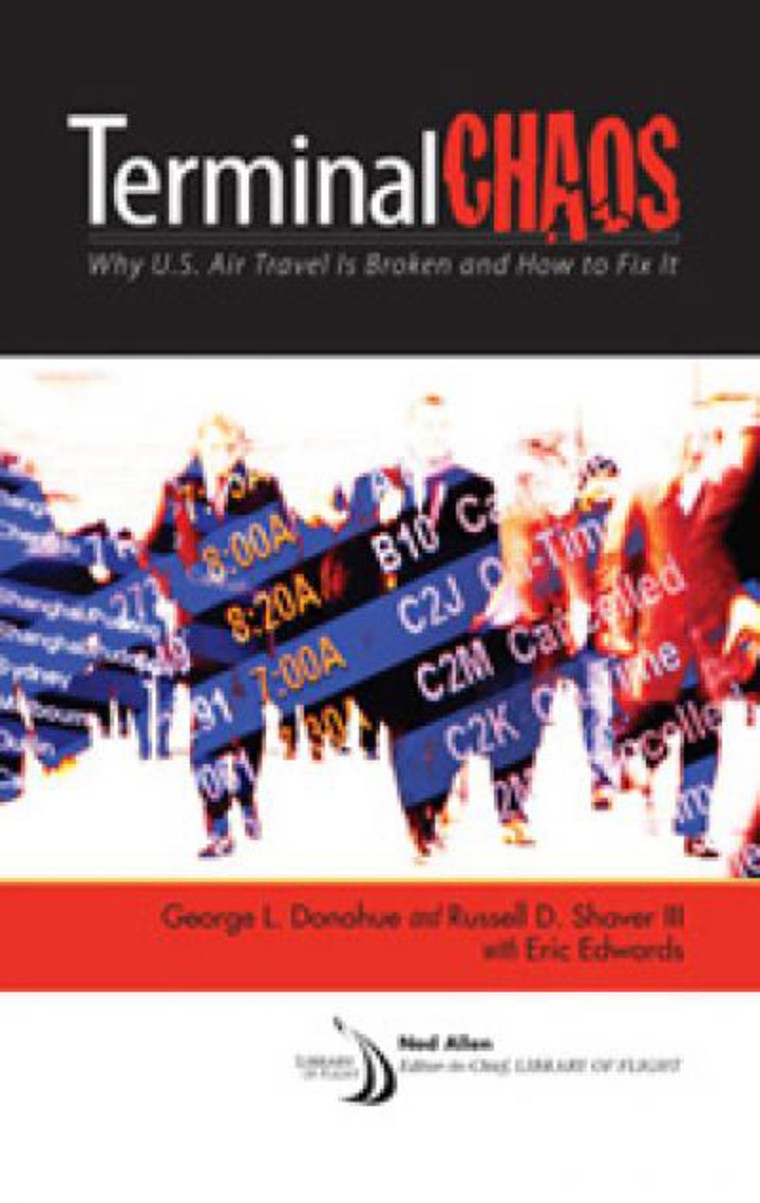Two hundred eighty one million hours.
According to George Donohue, a professor at George Mason University, that number —equivalent to 32,477 years! — represents the cumulative time passengers lost last year due to delays, canceled flights, diverted planes and denied-boarding situations.
And Donohue should know, considering he’s director of the school’s Center for Air Transportation Systems Research, as well as a former official with FAA and NASA. Furthermore, he’s the co-author, with Russell Shaver III, of a new book, “Terminal Chaos: Why U.S. Air Travel is Broken and How to Fix It,” due out next week.
With Memorial Day and the ensuing summer travel season right around the corner, Donohue shared some thoughts on the problem and a possible solution:
Q: U.S. airlines carried almost 770 million passengers on more than 11 million flights last year. Is the problem that the system is simply too big and complex?
A: No. If you look at Europe, they run about the same level of operations and number of passengers as the United States, but they have about one-tenth of the delays and a much more predictable system. It’s the U.S. system that provides the worst predictability of air transportation in the industrialized world, and it’s due primarily to the regulatory framework of our system.
Q: What about the airlines? What role do they play?
A: The thing to recognize is that airlines start canceling flights due to congestion. The delays have gotten so long that the airlines can no longer maintain their schedule coherence. They have to start doing triage and selectively canceling flights.
Q: What impact does that have on overall flight delays?
A: DOT only looks at flight delays and [only considers] delays in excess of 15 minutes. You also need to look at canceled flights, which go to a different column in the DOT and FAA database. And canceled flights generate approximately 10 times longer delays for passengers than delayed flights.
Q: And 2007 was an especially bad year for cancellations?
A: Cancellation statistics went up in 2007, and a small increase in the number of flight cancellations can generate a very large increase in passenger delays. Even though you might have 25 percent of all flights in the U.S. delayed and only two percent canceled, the passengers on the canceled flights have almost the same amount of total delay as all the delayed passengers put together. The interaction between cancellations and high load factors amplifies the delays.
Q: Will flight caps help?
A: Capping flights at airports like Newark, LaGuardia and JFK will only lock in inefficient utilization at those very important airports. The airlines can then start charging “scarcity rents” because the demand is exceeding the capacity.
Q: Instead, you favor slot auctions (in which airlines bid for the right to “own” a set number of takeoffs and landings per day). Why?
A: The United States is the only country in the industrialized world that doesn’t have slot controls at its major airports. We believe the U.S. needs slot controls at all of its major airports for safety and predictability of travel, but that we should allow the market to allocate who gets those slots and how they use them.
Q: And that’s part of your 30 percent solution?
A: Yes. If DOT was allowed to auction those slots, then the airlines would pay a market-based price for a scarce resource. They would then be incentivized to put the right-sized airplane into that slot, the one that generates revenue that’s commensurate with the value of that slot. If the frequency of flights is cut 30 percent and the average airplane size goes up about 30 percent — about 30 more seats per flight — you’d get the same capacity at the same or even a lower price with almost no delays.
Q: Would such a plan need to be implemented system-wide or would it apply to specific airports?
A: Most of the airports in this country aren’t congested, so there’s no point in having congestion controls. There are roughly 10 today where you’d want to have annual auctions. Maybe 20 percent of the slots would be auctioned every year to allow for new entrants and changing business conditions.
Q: Speaking of changing business conditions, several airlines have shut down since you did your research. Does that change anything?
A: Bankruptcies are to be expected and they’re going to get worse. The current rules are forcing the airlines toward the brink of bankruptcy. That’s not good for them and it’s not good for the American public. You’d like to have rules that provide predictability, competition and an adequate profit margin to keep the airlines working.
Q: What can we expect for the summer and beyond?
A: For the summer, delays, flight cancellations and higher ticket prices. Beyond that, unless Congress changes the ground rules, by 2010, we should be into an economic recovery, which means flying will be an absolutely miserable experience.
